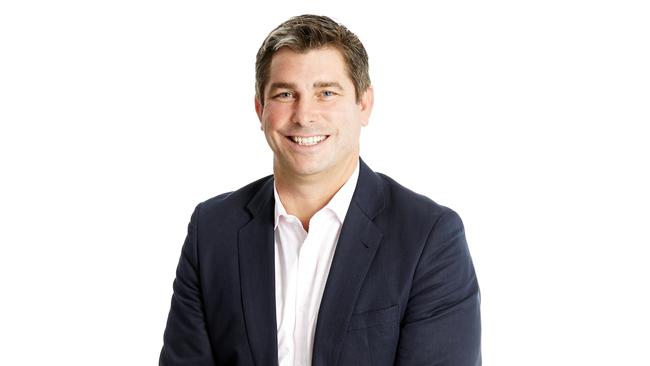Risky business: how to spot crypto and gambling problems
Cryptocurrencies and gambling have boomed among under-30s. But how can you tell when family or friends push it too far?
SmartDaily
Don't miss out on the headlines from SmartDaily. Followed categories will be added to My News.
Young adults went on a gambling and cryptocurrency splurge last year amid long Covid lockdowns, prompting warnings to check that such risky spending patterns don’t continue.
Psychology and money specialists say chasing financial windfalls helps give people a sense of control in uncertain times – and losses can be valuable lessons so long as they don’t spiral into bigger problems.
There are ways for parents, friends and other family members to spot someone in a risky spending spiral and assist them in finding professional help.
Consumer-driven data company Fonto tracked the transactions of 40,000 members during 2021 and found that one in three 18-to-29 year olds “redirected a chunk of their earnings into gambling”.
They spent an average $1000 and topped up their betting accounts an average 72 times during the year, second only to groceries as a regular expense, Fonto found.
One in six under-30s invested in cryptocurrencies, with an average spend of $380.
While cryptocurrency is not technically gambling, its huge rises and falls since early 2021 – twice doubling in value, then halving – put it at the extreme end of investment risks.
BIGGER RISKS
Fonto chief executive officer Ben Dixon says young adults are tech-savvy and understand digital currencies and what they can do.

New technologies always surprise: “Like us thinking a mobile phone would never become a camera and a sound recorder,” Dixon says.
“Young people are prepared to take bigger risks because they’re less focused on family obligations, children and retirement.”
Stories of people enjoying tenfold returns on crypto investments and buying their first car within months can quickly spread online, Dixon says.
Bitcoin, the biggest cryptocurrency, was trading near $91,000 each in November but is now worth around $45,000.
CreationWealth senior financial adviser Andrew Zbik says young people may lose several thousand dollars on crypto before stopping – an expensive lesson but not as bad as it could be.
“It’s good because you are not losing $200,000 – and it helps you understand your tolerance to risk,” he says.
ONGOING ISSUES
Ongoing gambling losses are a more dangerous problem.
With gambling issues, “go straight to the pros” and refer them to specialists, Zbik says.
“If someone has a gambling problem, a layperson is not going to fix it.
“Even as a financial adviser, I wouldn’t try and help to counsel someone.”
The internet can be a valuable ally. There are links, advice and resources at www.gamblinghelponline.org.au to help people make changes and help others.

“If someone’s still playing around after two or three years, is paying money in and has nothing to show for it, they have got a problem,” Zbik says.
Psychologist and behavioural economist Phil Slade says people who gamble regularly become more open to placing bigger bets in an effort to claw back losses, and their loved ones should be careful when trying to help.
“A telltale sign is people asking to borrow money several times, and they start to make up excuses,” he says.
“When you say no, there is emotional intensity and pressure they put on you because they are desperate.”
THE SHAME OF IT
Slade says shame is linked to people being exposed as problem gamblers, and can lead to horrific consequences.
“As a psychologist, people don’t feel shame from me, but they care about what the people they love think,” he says.
“When gambling, they’re on the edge of shame, they’re not at peace with themselves. So you are trying to create peace, not confronting them or having an intervention to get it out in the open.
“Once you notice it in somebody, it’s almost always too late – rarely do you nip it in the bud at the moment it doesn’t matter. It matters.”

Slade says gambling issues require expert help.
“Sometimes it’s you getting help first to find out how to approach them,” he says.
“If you think someone is in trouble, get some professional help. The internet can be your best friend.”
WARNING SIGNS
Financial signals that someone may have a gambling problem include:
• Money missing from bank accounts, wallets or money jars
• Household items and valuables missing
• Regularly short of money even though they earn a wage
• Borrowing money regularly
• Having many loans at the one time
• Being secretive about financial records or pay slips
• Unpaid bills and disconnection notices
• Lack of food in the house
Source: www.gamblinghelponline.org.au





